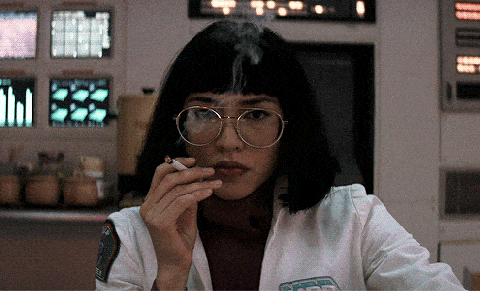June Books
This month has basically been a marathon of short fiction, a final trudge through Dune and me discovering a new favourite book and a desire to read classics again. Oh and I read one of the most obscene books ever written!
Dune by Frank Herbert
I wrote a separate review for Dune as I felt like I had a lot to say, and I did. So TL;DR I liked it but I didn’t like it. It’s complicated and it depends on how you read it and from which POV. But if you fancy reading the full review then click here.
At The Sign Of The Cat And Racket (La maison du Chat-qui-pelote) by Honoré de Balzac
This month I decided to start tackling French author Balzac’s The Human Comedy (La Comédie Humaine) a collection of interlinked works which is made up of novels, novellas and essays set in during the Restoration period and July Monarchy. Balzac could be seen as a French Dickens, as both wrote about society and with a focus on realism. This novella follows a few characters who work at a small shop in Paris and the owner marries his daughters off to two very different men. The themes of money, happiness, status, faithfulness, art, and work run throughout. At some point when my French is up to scratch, I’ll probably try reading some of The Human Comedy in French so stay tuned for that (let’s hold me accountable please!)
Also, Balzac’s At The Sign Of The Cat And Racket has forced me to reconsider the genre of realism, and particularly whether I was wrong about Dickens! I have for many years refused to touch a Dickens novel after reading A Christmas Carol at school and finding it veritably boring. I even avoided reading Bleak House for my degree because I thought I knew that I would hate it (ended up reading Walden by Thoreau and despised that instead) but maybe I would have liked it! Maybe I need to reconsider Dickens, and that folks is something I never thought would happen!
Micromegas by Voltaire
More French lit, I think I often coincide my cinematic choices with my book choices as recently I started watching French films again and suddenly all I want to read is classic French Literature. It’s a bit strange but I’ll go with it (I’ll have to because I have ordered so many French Lit second-hand books recently). I read Candide for Uni last year and really enjoyed Voltaire’s wit and seeing that I was miles behind on my 75 books in a year challenge I thought to myself “why not read this tiny little book by a French author that you’ve read before”. So I did. Micromegas is a rather strange little thing, it is essentially Sci-Fi before Sci-Fi was a thing.
The short story follows a giant from a planet called Sirius as he journeys through the solar system, he meets another giant (though much smaller than Micromegas) on Saturn and they soon find themselves on Earth. For these giants, Human life is so small (literally) and they find our behaviour (waging wars) perplexing due to how insignificant we seem, as in comparison, humans are tiny, and live such short lives and have a much inferior intellect to them. Voltaire’s brand of satire is fantastic and I can’t wait to read more of his works.
Record of a Night Too Brief (蛇を踏む) by Hiromi Kawakami
I like abstract stories, I like bizarre and challenging stories. But I did not like any of the short stories in this volume. I also have in the past read Kawakami and enjoyed her prose, but this collection of three stories just didn’t do anything for me. I found them too strange and I was unable to connect with them on any level. All I can say is nevermind, you win some and you lose some. Will I continue to check out Kawakami’s work? Sure, I think she’s an interesting and talented writer, it’s just that these stories didn’t touch me.
A Spy in the House of Love by Anaïs Nin
I have found a new author to consume wholeheartedly. Her prose is deliciously poetic, and the way she writes Sabine is so vivid and relatable but alarming and deplorable at the same time. I loved this novel and I feel like I need to get a physical copy (I read it on Libby) to underline all the moments of poeticism and to read it over and over again.
Femme Fatale by Guy de Maupassant
This Penguin Little Black Classics book contains four short stories set in 19th Century France was nothing particularly fantastic, just ok in my opinion. But for 80p you can’t really go wrong and I might read Maupassant’s most famous work Bel-Ami as a result.
Story of the Eye (Histoire de l'œil) by Georges Bataille
This is a book that will leave an impression on you. It’s interesting to analyse from a psychological angle but my goodness it is utterly depraved and probably the most f***ked up book I have ever read. All I’m prepared to say is that I can probably never look at eyes and eggs the same way again.








